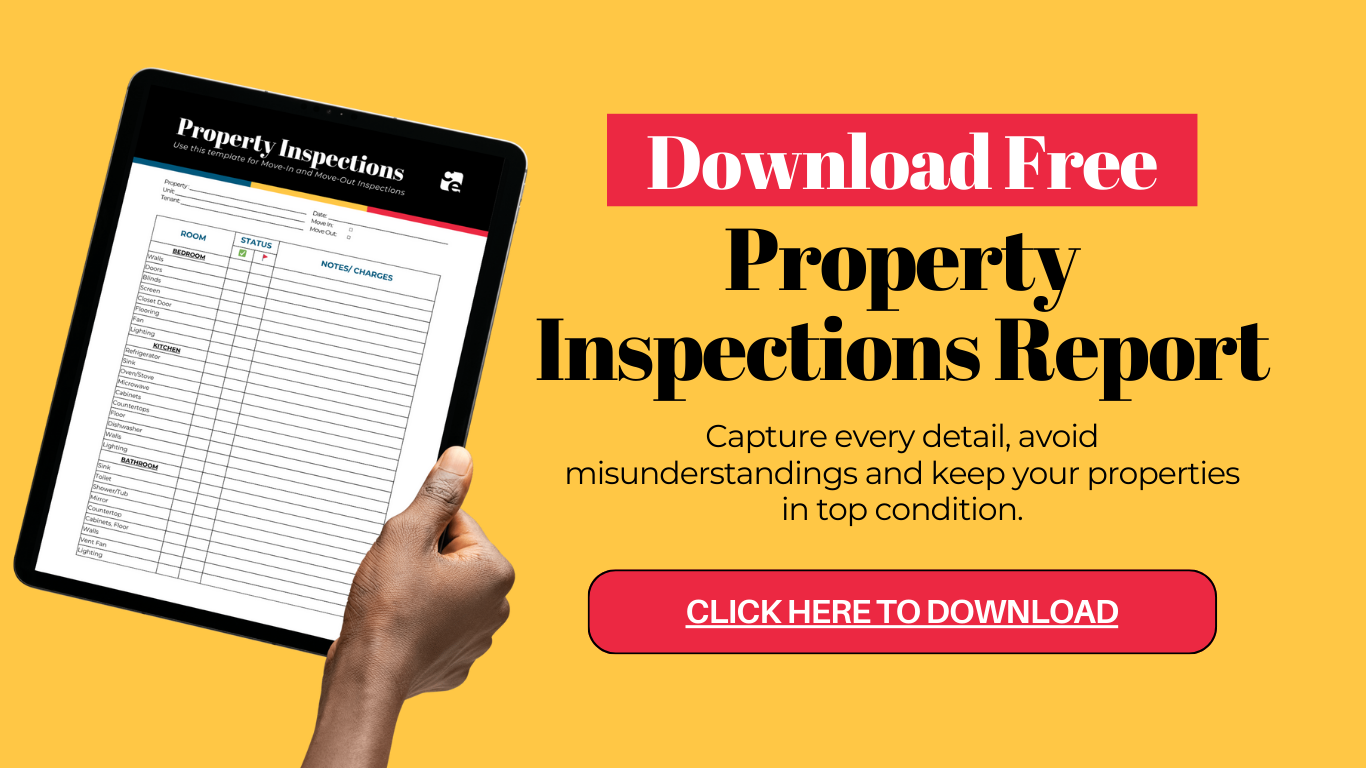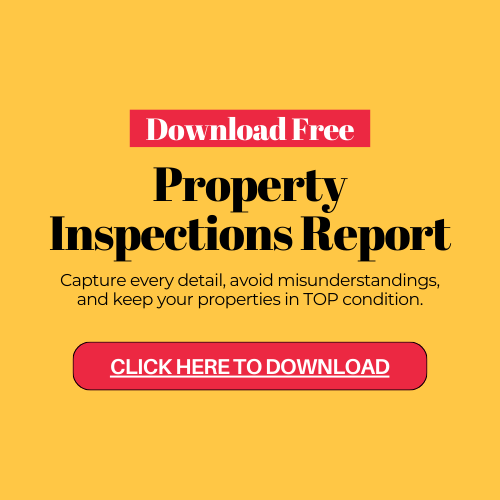A Landlord's Guide to Section 8 Inspections
Admin • August 22, 2022


Inspections 101
Let's talk about one of the main concerns that landlords have about accepting Section 8 tenants and being a part of the Section 8 program – the inspections.
For some landlord’s, there may be some uneasiness around meeting with a city inspector at their property. How long will it take? Will this end up costing me more money? What if the building doesn’t pass the inspection? And, while it is true that the Section 8 program requires yearly inspections, as a professional property management company that is in the business of helping landlords navigate through processes like these as smoothly as possible, we're here to arm you with the information that will help mitigate the risks of painful inspections and build a better understanding of the process.
That way, you'll worry less about Section 8 inspections and focus more on the benefits that the program can bring to your investment. Let's get started!
THE INITIAL INSPECTION
First, there are two main categories of the inspection process: the initial inspection (done before the program can approve you for payments) and the yearly (in some cases, every-other-year) follow-ups.
In the first category, the inspection will occur after you have screened the tenant and sent a Request for Tenant Acceptance Form to the local PHA (public housing authority), along with any additional documents that your housing authority may require. The housing authority will take a couple of days to review all the documents and then schedule the inspection.
Note that the inspection is free and that you must pass the inspection before executing a lease with the prospective tenant.
What you can expect for that initial inspection? First, the inspector will be looking to see if your rental unit and the common areas (including garages) that your tenant will have access to meet "housing quality standards," or HQS. The list below will give you a general idea of the 13 HQS performance requirements, which have been pulled directly from the HUD website:
- Sanitary facilities
- Site and Neighborhood
- Water Supply
- Illumination and Electricity
- Food Prep. and Refusal Disposal
- Sanitary Conditions
- Lead-Based Paint
- Structure and Materials
- Space and Security
- Smoke Detectors
- Access
- Interior Air Quality
- Thermal Environment
Remember, the housing authority's goal is simply to help people find "decent, safe, and sanitary housing in the private market." In other words, they're not looking for anything extraordinary. They're mostly looking to make sure that your investment property is taken care of in a way that any good, responsible landlord or property management company should be doing already. What's more, keep in mind that this is government-funded program that has a very long wait list for tenants and a shortage of landlords, which means they want you to succeed and pass all your inspections! This is why you have access to the exact checklist and inspection form that the inspector will use, as well as a list of frequently-asked-questions, on their website.
On the inspection day, you or your property manager will need to be onsite to meet with the inspector. Inspections are usually conducted between the hours of 7:00 am and 5:30 pm and, depending on your area, it may not be possible to get a more exact timeframe until the day of the inspection.
Also note that, during the pandemic, it was possible to conduct the inspection yourself through a video chat with an inspector. This can have some added conveniences and safety, but you do need to make sure your connection is strong, the lighting and audio is decent, and the call goes uninterrupted the whole way through to avoid failing the inspection. Check to see if your local PHA still allows for these types of inspections.
Whether in-person or online, make sure that your unit has all the utilities turned on, and all available appliances are in working/testable order. Before leaving, the inspector will let you know if everything passed or failed. For a neatly organized flowchart of the entire process, check out the PDF on the HUD website here.
If the inspection is passed, you will fill out a Housing Assistance Payments (HAP) contract with the local PHA that issued the voucher and then execute your lease with the new tenant! There may be some processing time before the first payment is received, but the housing authority will be sure to prorate any amount from the date the lease starts. From there, you'll be enjoying on-time payments from the housing authority each month.
If the property does not pass, the inspector will let you know of the deficiencies and if they are considered "life-threatening" or "non-life-threatening." The former will require that you make repairs and schedule a new inspection within 24 hours; the latter will give you up to 30 days to make the necessary repairs and schedule an inspection. It's definitely a good idea to look up the details with your specific public housing authority because some of them have the flexibility to approve tenancy (and begin sending you payments) even if the property fails the inspection, as long as the deficiencies are not life-threatening.
For example, the Housing Authority of the City of Los Angeles (HACLA) may (on a case-by-case basis) allow landlords to move forward with the tenancy, make the necessary repairs, and then send photos, receipts, and a self-certification form to the housing authority (complete with the tenant's sign-off of the work), instead of having to wait to reschedule with the inspector. You may want to check out this helpful list of "Commonly Failed Items" from the Housing Authority of the City of Long Beach (one the markets in which Coastline Equity manages apartment buildings).
YEARLY INSPECTIONS
The second category of inspections are the ones that will take place at least every other year (though some housing authorities will do them annually). While this may seem off-putting to some at first, routine inspections can serve as a good opportunity to check on the condition of the unit and identify maintenance needs that may have otherwise gone unnoticed for some time. What's more, this also holds the tenant accountable (to both you and the housing authority) for keeping your rental unit in good shape.
In the state of California, for example, tenants are required to take reasonable care of their rental units, as well as common areas such as hallways and outside areas. They are also responsible for any damage caused by their neglect or abuse, as well as for any damage caused by their family, guests, or pets. If the tenant fails to rectify any issues they caused, they risk losing their voucher and being removed from the program. Of course, just as in the initial inspection, any repairs that are required by the landlord will need to be remedied within 30 days (24 hours if it's a life-threatening issue).
“SPECIAL” INSPECTIONS
Lastly, there is the possibility for "Special Inspections," which can arise from a complaint from the tenant, the landlord, or a member of the public. As long as you keep your property in decent condition, this should work in your favor as it provides you with leverage and support from the housing authority against voucher holders that are not taking care of your property.
Hopefully, this has given you some great insight into the inspection process for the Section 8 program. While it can seem daunting at first, your local PHA will have plenty of detailed information to help the process go as smoothly as possible. Remember, it is in their best interest to make sure that the program runs smoothly, both for the tenant and the landlord.
< Older Post
Newer Post >
Let's elevate the industry together—share this blog with fellow investors.
More about Coastline Equity
-
Property Management Services
 Learn More
Learn MoreOur team will handle all your property needs, offering specialized services such as in-depth inspections, liability management, staff recruitment and training, and round-the-clock maintenance—expert support tailored to the unique requirements of your real estate assets.
-
About Us
.webp) Learn More
Learn MoreOur dedicated team transforms property management challenges into opportunities. From tenant management to streamlined rent collection and proactive maintenance.
-
Property Management Excellence
 Learn More
Learn MoreAs a contributing author for Forbes, Anthony A. Luna brings a wealth of expertise and knowledge in the property management industry, real estate sector, and entrepreneurship, providing insights and thought-provoking analysis on a range of topics including property management, industry innovation, and leadership. Anthony has established himself as a leading voice in the business community. Through his contributions to Forbes, Anthony is set to publish his first book, 'Property Management Excellence' in April 2025 with Forbes Books.
-
Insights
 Learn More
Learn MoreLearn more about Coastline Equity's property management practices & processes and how we support our clients with education and a growth mindset.Coastline Equity Property Management is your partner as you continue to learn and grow.